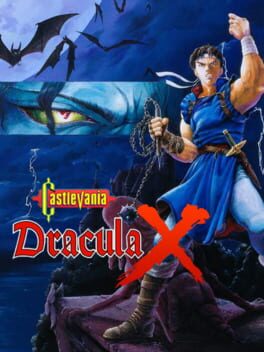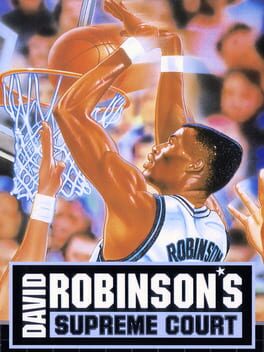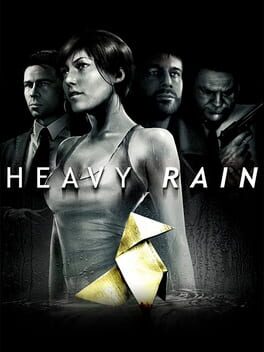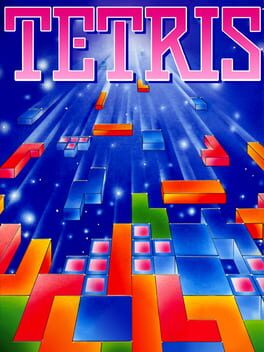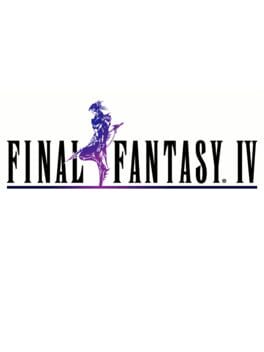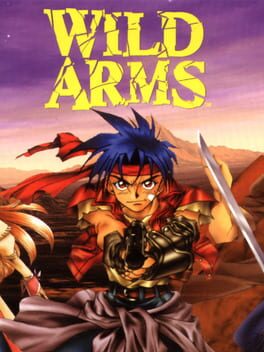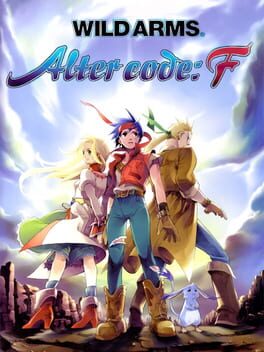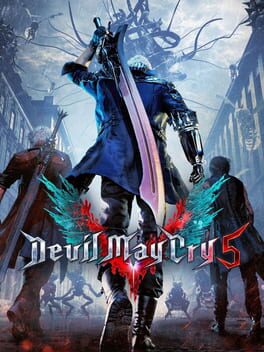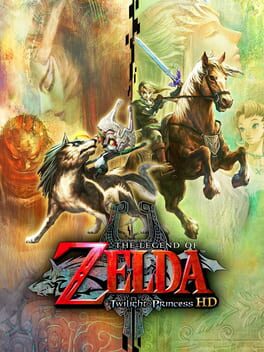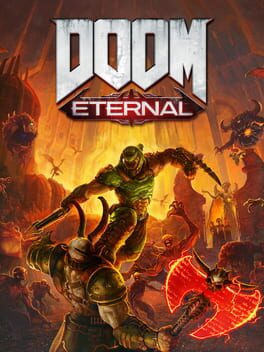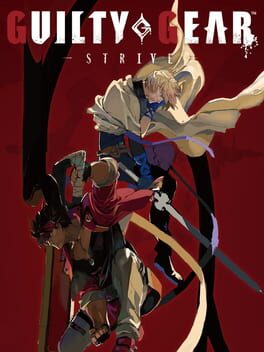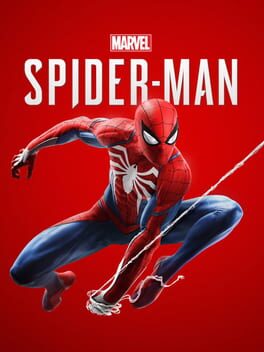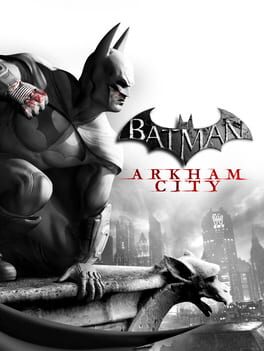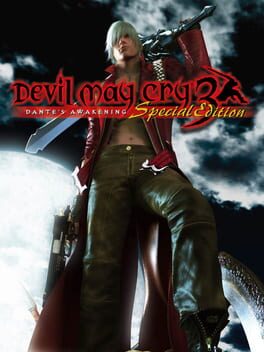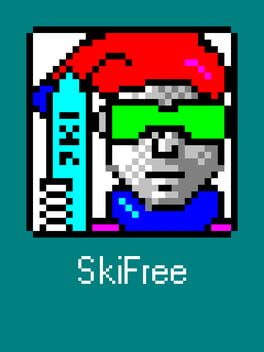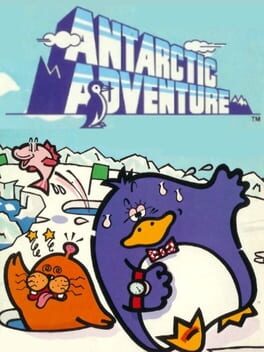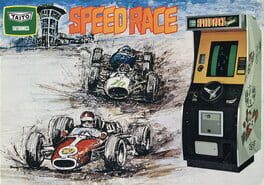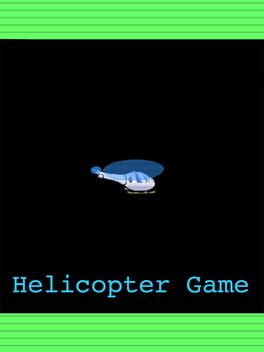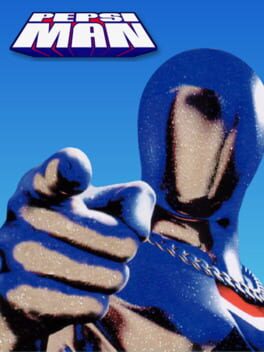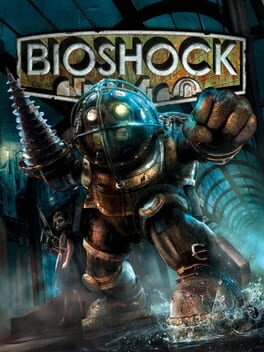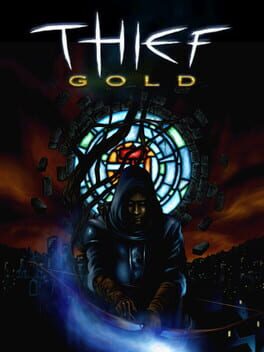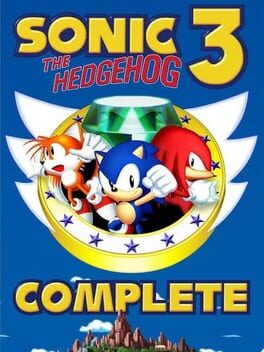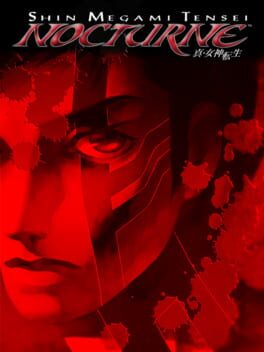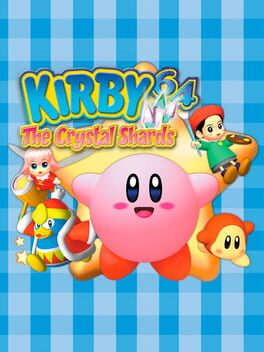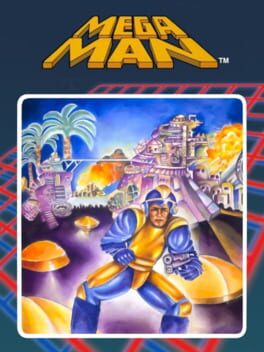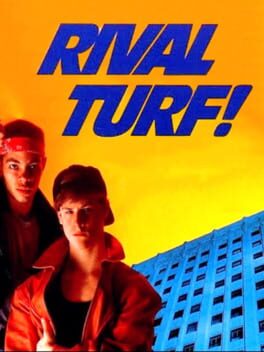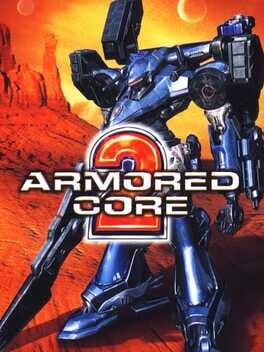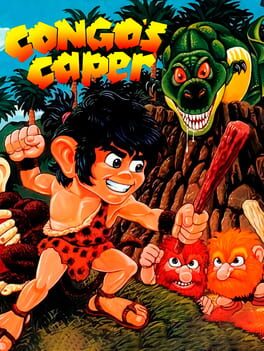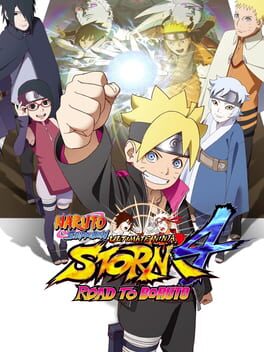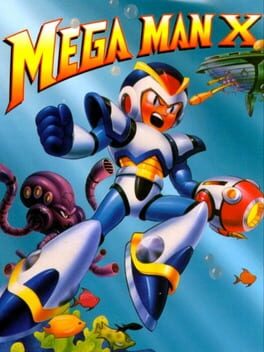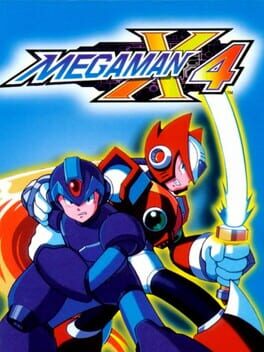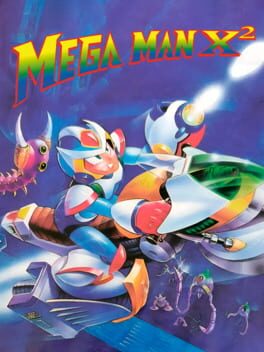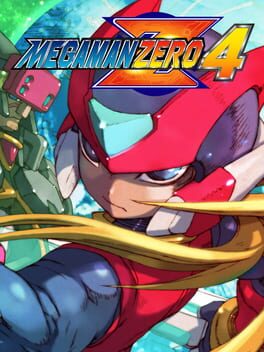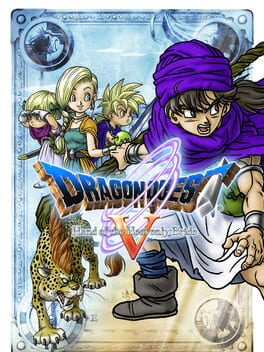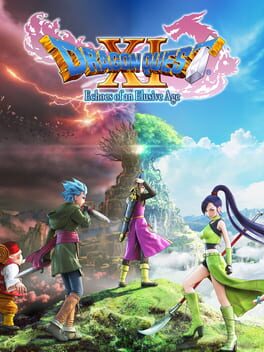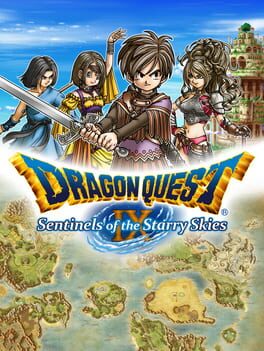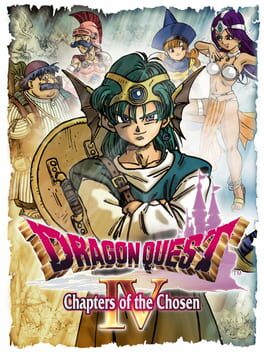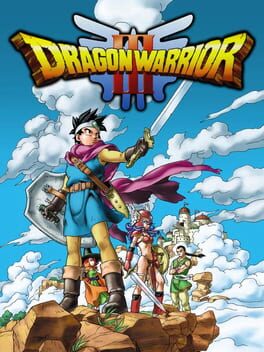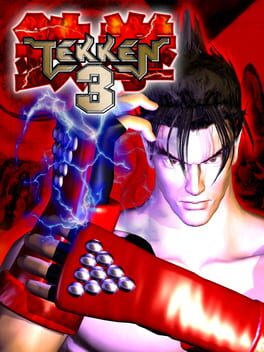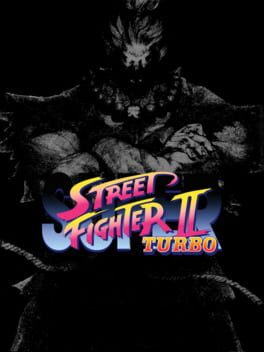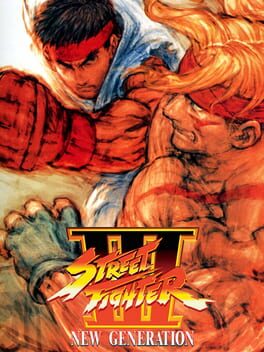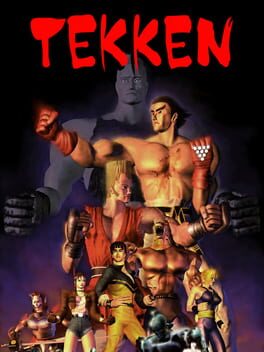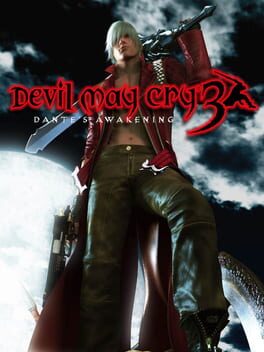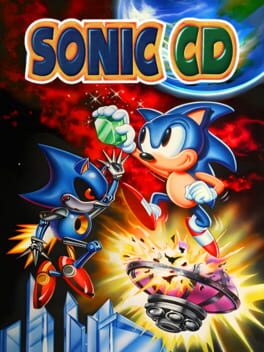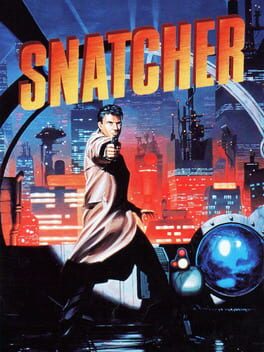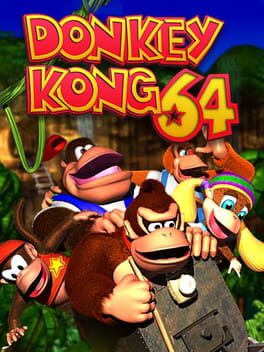iyellatcloud
2214 reviews liked by iyellatcloud
I mean, why not? When Nobunaga ruled part of Japan, and was asked for his reasoning to go after the rest, he simply went "because it's there". I'm pretty sure he said that, I was alive for it. It was essentially the same mindset I had with finishing the Advance Collection.
Known as "Vampire's Kiss" for our PALs, "Dracula X" could only be assumed to be meant as "Dracula's Hug" rather than some attempt at the 2Xtreme movement of the 90s. You see, because in here Dracula gives you a nice little hug and a peck on the cheek, all before he kicks you down a hole in his dilapidated humble abode. It makes one wonder why Dracula would even bother with floors in general when he's more than capable of flying everywhere, especially if he's already figured out that the best defense against Belmonts is to simply either make them walk up stairs, or dare them to hop with their cement-infused boots across magical levitating platforms. Where these platforms are coming from is a mystery, but I assume it's where all those holes in Dracula's throne room came from, or perhaps that's the origin of all the gaps in the grand hallway where one slip up means Richter falling into an alternate stage that denies him the ability to rescue Maria's now completely useless ass.
"Wow, thanks Richter! Good luck on your quest, I'll make my way out now."
Bitch.
It's really intriguing how a final boss fight can completely overtake discussion, and it's quite telling what the legacy of the Dracula's Smooch version of the climactic finale leaves behind when there exists an entire guide on GameFAQs dedicated to it. A useful one at that. Part of me wishes the Game Gear version of Sonic 2 would have something like that for it's first boss, but I guess there's not much to be helped there beyond "I sure hope the balls don't hit me". To say that the fight with Dracula X is a slog would be shorting it a few hundred didgeridoos, because man I could've made some tasty pancakes in the time it took trying to wait out his ass to get into an advantageous position to hit his godawful hitbox along the pillar system he installed in his throne room prior to him calling in an assist from Devil Kazuya. Kaiser Sigma from X3 would puke at all the times I uselessly cracked my whip across Dracula X's forehead and had it not register, because Konami designed this game from the ground up with anti-blockbuster rental countermeasures instead of waiting for it to come out to us, thus destroying all potential goodwill it could have found as a demake later during the age of emulation, with an audience less upset at being bamboozled out of a more faithful and less mean-spirited retelling of the beloved PC Engine classic. Instead, Switch owners will be annoyed they have to deal with this while Requiem continues chilling as a PS4 exclusive nearly six years later.
Baffling, though not quite as baffling as the censorship where they kept the blood on the title screen, but got rid of Death's Mortal Kombat Deception-style Hara Kiri where he decapitates himself with his own scythe, meanwhile Richter in our version apparently explodes into a pile of flour for Dracula X to make his cookies from.
What cookie would Richter be? Puzzling...
My opinion was ever so slightly improved from forcing myself to replay this for completion-sake, but the most heartwarming thing I get out of Dracula's Kiss personally is seeing the font used at the bottom of the title screen for the copyright, and being reminded of a childhood banger in Konami's Biker Mice From Mars which uses the same thing, so I guess I'll go play that now instead. Ciao.
Known as "Vampire's Kiss" for our PALs, "Dracula X" could only be assumed to be meant as "Dracula's Hug" rather than some attempt at the 2Xtreme movement of the 90s. You see, because in here Dracula gives you a nice little hug and a peck on the cheek, all before he kicks you down a hole in his dilapidated humble abode. It makes one wonder why Dracula would even bother with floors in general when he's more than capable of flying everywhere, especially if he's already figured out that the best defense against Belmonts is to simply either make them walk up stairs, or dare them to hop with their cement-infused boots across magical levitating platforms. Where these platforms are coming from is a mystery, but I assume it's where all those holes in Dracula's throne room came from, or perhaps that's the origin of all the gaps in the grand hallway where one slip up means Richter falling into an alternate stage that denies him the ability to rescue Maria's now completely useless ass.
"Wow, thanks Richter! Good luck on your quest, I'll make my way out now."
Bitch.
It's really intriguing how a final boss fight can completely overtake discussion, and it's quite telling what the legacy of the Dracula's Smooch version of the climactic finale leaves behind when there exists an entire guide on GameFAQs dedicated to it. A useful one at that. Part of me wishes the Game Gear version of Sonic 2 would have something like that for it's first boss, but I guess there's not much to be helped there beyond "I sure hope the balls don't hit me". To say that the fight with Dracula X is a slog would be shorting it a few hundred didgeridoos, because man I could've made some tasty pancakes in the time it took trying to wait out his ass to get into an advantageous position to hit his godawful hitbox along the pillar system he installed in his throne room prior to him calling in an assist from Devil Kazuya. Kaiser Sigma from X3 would puke at all the times I uselessly cracked my whip across Dracula X's forehead and had it not register, because Konami designed this game from the ground up with anti-blockbuster rental countermeasures instead of waiting for it to come out to us, thus destroying all potential goodwill it could have found as a demake later during the age of emulation, with an audience less upset at being bamboozled out of a more faithful and less mean-spirited retelling of the beloved PC Engine classic. Instead, Switch owners will be annoyed they have to deal with this while Requiem continues chilling as a PS4 exclusive nearly six years later.
Baffling, though not quite as baffling as the censorship where they kept the blood on the title screen, but got rid of Death's Mortal Kombat Deception-style Hara Kiri where he decapitates himself with his own scythe, meanwhile Richter in our version apparently explodes into a pile of flour for Dracula X to make his cookies from.
What cookie would Richter be? Puzzling...
My opinion was ever so slightly improved from forcing myself to replay this for completion-sake, but the most heartwarming thing I get out of Dracula's Kiss personally is seeing the font used at the bottom of the title screen for the copyright, and being reminded of a childhood banger in Konami's Biker Mice From Mars which uses the same thing, so I guess I'll go play that now instead. Ciao.
Heavy Rain
2010
I can’t profess to know fully the timeline of triple-A gaming — just when exactly we reached the shift towards what we’re getting now — but something funny I found as I played through David Cage’s Heavy Rain is how it honestly predates a lot of the trends present nowadays. The core relationship (or, at least, one of them) is between a father and his son, the latter representing the father’s attempts and desires to be redeemed of his past sins. It’s a game that’s evidently attempting to be more than just a game, to prove that the medium can be seen as art, yet, rather than leaning into being a video game, instead tries to achieve this by trying to emulate Hollywood films, with a specific focus on cinematography, hiring screen actors, using mo-cap amongst other things. It got praise in its time for bringing the medium forward its approach of interactive narrative being seen as revolutionary by mainstream critics, showing to the world what the future of gaming could be (and, admittedly, while Cage did not invent interactive narrative, he did make games such as Heavy Rain, games where “your choices matter” a trend for years to come). You even watch your child die in the first half hour of the game. I’m not sure whether it’s necessarily counted amongst, say The Last of Us or 2018's God of War in terms of cinematic AAA gaming, but to some extent it did walk so they could run. For better or worse.
The game follows four particular characters, who, while not initially knowing each other, are tied together in their attempts to find the Origami Killer: a serial killer who entraps and drowns children during periods of extreme rainfall, challenging their fathers to Saw-esque torture games where both their, and their sons, lives hang on the line. You play as Ethan Mars, who, after the accidental death of his first son, Jason, now must race against time to save his second son, Shaun, after the two of them are chosen as the Origami Killer’s next victims. You also play as Scott Shelby, a former cop turned private investigator visiting the previous victims of theorigarmy Origami Killer, trying to unearth old clues to find new leads. You also also play as Detective Narmin Norman Jayden, an FBI agent investigating the origammy Origami Killer and attempting to find Shaun, while at the same time dealing with his crippling addiction to drugs and VR sunglasses. You also also also play as Madison, who, after being attacked by dream terrorists in her apartment, goes to a hotel, finds Ethan, and gloms onto him for the rest of the story. But every minute that passes is one less minute to save Shaun, and only through the four’s combined investigation may the secrets of the Origami Killer be revealed…
I’ll give it a few things: I do love all the ways individual scenes can diverge and reconvene and take into account most of the things the player does. While everything on an overall arc level tends to streamline and go down the one path, it’s kind of incredible just how differently individual scenes can diverge based on what happens, and just how many outcomes you can get. There was one early scene as Scott where a store I’m in gets targeted by a robber who doesn’t notice me. I’m encouraged to sneak up and grab a weapon, but then I fail the QTE, which leads the robber to see me and point his gun in my direction. What then follows is… a completely different scene, one where I can either try and talk the robber down, or try and stall for time until I can get close enough to attack. And this is all just from a branch that occurred when I fucked up a QTE. There’s also another moment where you can stumble across something you’re not meant to, finding yourself in a life-or-death confrontation with a completely different threat… or you can get what you need and get out without triggering that branch of the scene, your character not even having an idea of the bullet they just dodged. On a scene-by-scene level, a lot of the way the game constructs its interactive narrative is honestly pretty awesome, and I really loved looking up a lot of individual moments afterwards and seeing just how many different outcomes I could’ve gotten.
I’m also fond of how this game styles itself after detective noir, yet at the same time avoids the pitfalls I’ve seen other noirs trudge into. From the persistentheavy rain backdropping the game no matter where you are in this nameless American city, to the drab, grey, muted colour scheme that avoids the perils of low saturation, the game wears an aesthetic and wears it well, providing a little throughline that helps to suggest its colour and tone. I’m in addition a fan of the way they used mo-cap: not merely just to capture the actor's likeness and such, but also to choreograph many of the QTE action sequences. And not only are they pretty well-choreographed in their own right (they’re clear, they have a bit of slapstick style, you can easily tell what’s happening) but I love how seamless they feel with the many ways they can go. Every action by a bad guy, every action by you can succeed or fail based on the appropriate QTE, yet never at any point did the editing feel choppy or unable to handle a particular combination of wins and losses, providing an overall sequence that’s fairly unique in terms of how it specifically shakes out yet still flows without much interruption.
Unfortunately, before any of that, the first thing you get to experience is just how awfully the game plays. I’m not sure what exactly possessed David Cage to put tank controls in his interactive narrative but good god are they a mismatch. As opposed to moving via tilting the control stick, doing that merely has your character tilt their head in that direction, and you must instead hold down R2 to actually have your character move. This makes things so much more cumbersome than they need to be, between having your characters get caught on objects, getting stuck between camera angles, and in general having a hard time getting to the precise place they need to be to interact with something. The quicktime events… are better and also worse. On default they’re fine, even if oftentimes it’s really hard to see them given the way they fly around (and behind) things in the environment. Other times they don’t fare as well: there’s this one specific type of QTE you have to do which effectively requires you to pretzel your hands across the controller in a way that's so uncomfortable to hold for an extended period. Anything that requires using the Playstation Move controls isn’t exactly great. You’re told to physically move the controller down but because up/down are reversed (and this isn’t changeable) you're actually meant to move the controller up. You’re told to move the controller up and then you get in position to do so and then suddenly you pass the QTE without even trying. You’re told to shake the controller and you have to do it for so long that it could honestly qualify as a form of exercise. Legitimately by the end the motion sensors were auto-succeeding QTEs without any input on my part, which was great when I was trying to get somewhere specific but the game instead pulled me away from it over and over again. I’m honestly a fan of how long the QTE action sequences go on for — they’re the type of endurance test I think works fairly well, imo — but as a whole, this game does not control well. At best it’s stiff and clunky, and at points feels physically painful to have to interface with.
The story also has some pretty major problems. Amongst other, more minor things (this city apparently has at least four separate serial killers) the overall mystery... feels rather slipshod, at points. The game directly lies to you at several points regarding the identity of the Origami Killer, and while that’s not something I hate in theory, the game doesn’t have nearly enough grace or proper consideration to pull a twist like that off. There are little moments that you can point at, in hindsight, but as the game actively goes through with the reveal and flashes back to all the things the culprit did throughout the story, many of the things you see are either things you, the player, never actually got to see, or actively plays a completely different scene to the one you saw, leaving it feeling like the story was actively trying to trick you for the sake of its twist as opposed to providing you any sort of clues or natural progression (and, at the same time, bringing into question why the culprit would’ve done certain things the way they did if they were the culprit the whole time). The game will assume you’ve gone down branches you never actually took, with Madison referring to events that she wasn’t there for, having the contact information for somebody she never meets depending on certain events, and, at one point, being whispered the identity of the killer, reacting in shock… despite, due to what was likely a cut interaction, the killer being somebody Madison has never met before.
And honestly, you can tell that certain plot elements were cut mid-development, yet the vestiges are still present, and leave quite a lot of plot points that never conclude or get expanded on. Ethan explicitly has visions, gets teleported across the city, gets sent into psychic realms, and it’s brought up that maybe he’s not fully in control of himself… and the moment this is addressed as a problem is the last time it’s ever brought up, apparently because they wanted to excise all supernatural elements from the mystery (yet still keep the sci-fi sunglasses?), meaning there’s this whole aspect of the plot that just ends up going nowhere. The game keeps track of how many inches the titular Heavy Rain reaches in every new scene (just like Indigo Prophecy did by showing the temperature continually dropping) but this doesn’t amount to anything, it’s just some background detail that this city is receiving continuous, unending, apocalyptic amounts of rain while everybody runs around and tries to find this one serial killer. Jason and Shaun were aged up from 4/5 to 10/11… yet still act like they’re the former, making it really feel as if this game doesn’t know how children act. There was meant to be a whole backstory beat where Madison is trying to live with her memories of being a journalist for the Iraq war, but then this is never expounded upon, so Madison just has her first scene be this dream sequence of being stalked and attacked by two men in her home, which, speaking of, it’s kind of incredible how literally every scene Madison forces her into some archetype: either being subservient to a man, or being subjected to some sort of sexualized violence. She goes from potential assault victim to being Ethan’s wetnurse to being Ethan’s wetnurse again to potential torture victim to being forced to strip at gunpoint (and of course the way the game frames this is very classy) to very suddenly becoming Ethan’s love interest and giving the player a fucking incredible QTE sex scene. The very first scene she’s in you can interact with a clothesrack and then very suddenly she takes her clothes off and has a full-on shower scene. And meanwhile, unless you look at something rather specific in that same segment you don’t even get to know that she’s a journalist until the game’s almost over. She at least manages to be the main driver of the plot during the endgame — and manages to do so without the game relegating her into some sexist trope, barring her potential endings — but god, is the road to get there so Frank Miller-coded. And this isn’t even getting into the game’s two black characters.
Something that struck me is that the audio quality is, uh, quite bad. And this is from somebody a bit too hard of hearing to notice stuff like this. Oftentimes I’d find that the music, or the titular heavy rain would overpower everything else in the mix, making it impossible to hear anything the characters were saying unless you turned the volume down. The mic quality — particularly for the kids — is rather spotty. Every time I listened in on a character’s thoughts I legitimately thought something was wrong with my setup because it sounds so rough: the echo effect is so loud and tinny and the same channel as the unaltered line and it legitimately feels like the line is playing twice at once instead of merely being an echo filter. And this doesn’t even get into the voice acting. Most of the cast seem to be British or otherwise European playing Americans and it really shows. Everybody seems to be in a perpetual state of fighting with their accent. There are pretty consistent intonation issues across the board: nobody pronounces “origami” consistently, or even correctly. There are a couple of decent performances among the muck — Madison pretty consistently does a good job, Norman tries his best despite being the most hamstrung by accent issues — but a lot of the other performances either strike me as either… bad direction or screen actors not quite being used to motion capture/voice acting. People meme the whole ‘press X to Jason’ thing but it’s clear that there’s some sort of miscommunication between intent and execution: the direction was evidently ‘call for your son’ but absent context it feels more like Ethan’s trying to get Jason to set the table more than he is desperately trying to find his son in the middle of the crowd. So many performances feel kinda apathetic or robotic or like they have a really bad cold, including the two main characters guaranteed to make it to the end. It’s very funny that, among other things, this game mostly predates the trend of using non-voice actors in voice roles (at least for video games — Aladdin and Shrek had long pushed voice actors out of film roles) because it showcases a lot of the pitfalls that doing so can lead into, not to mention all the other, persistent issues with this game’s audio.
…It feels weird, in the end, to place this lower in rank than the two other Quantic Dream games I’ve played thus far. If, in part, because of what Heavy Rain has going for it. As opposed to Beyond: Two Souls, which plays it rather boring except for the parts that maybe don’t stand out for the better, or Indigo Prophecy, which honestly reads like David Cage got concussed halfway into writing it, Heavy Rain does a decent amount well. It builds up a tone, its action sequences are well choreographed especially considering how many permutations of them are present, and it’s really cool to see just how its choice-and-consequence is structured on a scene-by-scene basis. It’s a pity, then, that all these good parts stuck in an overall package that… struggles, between its awful control scheme, its poorly edited mystery, the rough audio quality and how David Cage really needs to drink Respect Women Juice. Sure, compared to everything else, and considering its place in history, Heavy Rain has a lot I’m personally willing to bat for, but under the deluge, after the storm, when the rivers and the creeks have burst their banks and dealt irreversible damage to the ecosystem… it’s rather difficult to care about the water amongst the mud. 3/10.
The game follows four particular characters, who, while not initially knowing each other, are tied together in their attempts to find the Origami Killer: a serial killer who entraps and drowns children during periods of extreme rainfall, challenging their fathers to Saw-esque torture games where both their, and their sons, lives hang on the line. You play as Ethan Mars, who, after the accidental death of his first son, Jason, now must race against time to save his second son, Shaun, after the two of them are chosen as the Origami Killer’s next victims. You also play as Scott Shelby, a former cop turned private investigator visiting the previous victims of the
I’ll give it a few things: I do love all the ways individual scenes can diverge and reconvene and take into account most of the things the player does. While everything on an overall arc level tends to streamline and go down the one path, it’s kind of incredible just how differently individual scenes can diverge based on what happens, and just how many outcomes you can get. There was one early scene as Scott where a store I’m in gets targeted by a robber who doesn’t notice me. I’m encouraged to sneak up and grab a weapon, but then I fail the QTE, which leads the robber to see me and point his gun in my direction. What then follows is… a completely different scene, one where I can either try and talk the robber down, or try and stall for time until I can get close enough to attack. And this is all just from a branch that occurred when I fucked up a QTE. There’s also another moment where you can stumble across something you’re not meant to, finding yourself in a life-or-death confrontation with a completely different threat… or you can get what you need and get out without triggering that branch of the scene, your character not even having an idea of the bullet they just dodged. On a scene-by-scene level, a lot of the way the game constructs its interactive narrative is honestly pretty awesome, and I really loved looking up a lot of individual moments afterwards and seeing just how many different outcomes I could’ve gotten.
I’m also fond of how this game styles itself after detective noir, yet at the same time avoids the pitfalls I’ve seen other noirs trudge into. From the persistent
Unfortunately, before any of that, the first thing you get to experience is just how awfully the game plays. I’m not sure what exactly possessed David Cage to put tank controls in his interactive narrative but good god are they a mismatch. As opposed to moving via tilting the control stick, doing that merely has your character tilt their head in that direction, and you must instead hold down R2 to actually have your character move. This makes things so much more cumbersome than they need to be, between having your characters get caught on objects, getting stuck between camera angles, and in general having a hard time getting to the precise place they need to be to interact with something. The quicktime events… are better and also worse. On default they’re fine, even if oftentimes it’s really hard to see them given the way they fly around (and behind) things in the environment. Other times they don’t fare as well: there’s this one specific type of QTE you have to do which effectively requires you to pretzel your hands across the controller in a way that's so uncomfortable to hold for an extended period. Anything that requires using the Playstation Move controls isn’t exactly great. You’re told to physically move the controller down but because up/down are reversed (and this isn’t changeable) you're actually meant to move the controller up. You’re told to move the controller up and then you get in position to do so and then suddenly you pass the QTE without even trying. You’re told to shake the controller and you have to do it for so long that it could honestly qualify as a form of exercise. Legitimately by the end the motion sensors were auto-succeeding QTEs without any input on my part, which was great when I was trying to get somewhere specific but the game instead pulled me away from it over and over again. I’m honestly a fan of how long the QTE action sequences go on for — they’re the type of endurance test I think works fairly well, imo — but as a whole, this game does not control well. At best it’s stiff and clunky, and at points feels physically painful to have to interface with.
The story also has some pretty major problems. Amongst other, more minor things (this city apparently has at least four separate serial killers) the overall mystery... feels rather slipshod, at points. The game directly lies to you at several points regarding the identity of the Origami Killer, and while that’s not something I hate in theory, the game doesn’t have nearly enough grace or proper consideration to pull a twist like that off. There are little moments that you can point at, in hindsight, but as the game actively goes through with the reveal and flashes back to all the things the culprit did throughout the story, many of the things you see are either things you, the player, never actually got to see, or actively plays a completely different scene to the one you saw, leaving it feeling like the story was actively trying to trick you for the sake of its twist as opposed to providing you any sort of clues or natural progression (and, at the same time, bringing into question why the culprit would’ve done certain things the way they did if they were the culprit the whole time). The game will assume you’ve gone down branches you never actually took, with Madison referring to events that she wasn’t there for, having the contact information for somebody she never meets depending on certain events, and, at one point, being whispered the identity of the killer, reacting in shock… despite, due to what was likely a cut interaction, the killer being somebody Madison has never met before.
And honestly, you can tell that certain plot elements were cut mid-development, yet the vestiges are still present, and leave quite a lot of plot points that never conclude or get expanded on. Ethan explicitly has visions, gets teleported across the city, gets sent into psychic realms, and it’s brought up that maybe he’s not fully in control of himself… and the moment this is addressed as a problem is the last time it’s ever brought up, apparently because they wanted to excise all supernatural elements from the mystery (yet still keep the sci-fi sunglasses?), meaning there’s this whole aspect of the plot that just ends up going nowhere. The game keeps track of how many inches the titular Heavy Rain reaches in every new scene (just like Indigo Prophecy did by showing the temperature continually dropping) but this doesn’t amount to anything, it’s just some background detail that this city is receiving continuous, unending, apocalyptic amounts of rain while everybody runs around and tries to find this one serial killer. Jason and Shaun were aged up from 4/5 to 10/11… yet still act like they’re the former, making it really feel as if this game doesn’t know how children act. There was meant to be a whole backstory beat where Madison is trying to live with her memories of being a journalist for the Iraq war, but then this is never expounded upon, so Madison just has her first scene be this dream sequence of being stalked and attacked by two men in her home, which, speaking of, it’s kind of incredible how literally every scene Madison forces her into some archetype: either being subservient to a man, or being subjected to some sort of sexualized violence. She goes from potential assault victim to being Ethan’s wetnurse to being Ethan’s wetnurse again to potential torture victim to being forced to strip at gunpoint (and of course the way the game frames this is very classy) to very suddenly becoming Ethan’s love interest and giving the player a fucking incredible QTE sex scene. The very first scene she’s in you can interact with a clothesrack and then very suddenly she takes her clothes off and has a full-on shower scene. And meanwhile, unless you look at something rather specific in that same segment you don’t even get to know that she’s a journalist until the game’s almost over. She at least manages to be the main driver of the plot during the endgame — and manages to do so without the game relegating her into some sexist trope, barring her potential endings — but god, is the road to get there so Frank Miller-coded. And this isn’t even getting into the game’s two black characters.
Something that struck me is that the audio quality is, uh, quite bad. And this is from somebody a bit too hard of hearing to notice stuff like this. Oftentimes I’d find that the music, or the titular heavy rain would overpower everything else in the mix, making it impossible to hear anything the characters were saying unless you turned the volume down. The mic quality — particularly for the kids — is rather spotty. Every time I listened in on a character’s thoughts I legitimately thought something was wrong with my setup because it sounds so rough: the echo effect is so loud and tinny and the same channel as the unaltered line and it legitimately feels like the line is playing twice at once instead of merely being an echo filter. And this doesn’t even get into the voice acting. Most of the cast seem to be British or otherwise European playing Americans and it really shows. Everybody seems to be in a perpetual state of fighting with their accent. There are pretty consistent intonation issues across the board: nobody pronounces “origami” consistently, or even correctly. There are a couple of decent performances among the muck — Madison pretty consistently does a good job, Norman tries his best despite being the most hamstrung by accent issues — but a lot of the other performances either strike me as either… bad direction or screen actors not quite being used to motion capture/voice acting. People meme the whole ‘press X to Jason’ thing but it’s clear that there’s some sort of miscommunication between intent and execution: the direction was evidently ‘call for your son’ but absent context it feels more like Ethan’s trying to get Jason to set the table more than he is desperately trying to find his son in the middle of the crowd. So many performances feel kinda apathetic or robotic or like they have a really bad cold, including the two main characters guaranteed to make it to the end. It’s very funny that, among other things, this game mostly predates the trend of using non-voice actors in voice roles (at least for video games — Aladdin and Shrek had long pushed voice actors out of film roles) because it showcases a lot of the pitfalls that doing so can lead into, not to mention all the other, persistent issues with this game’s audio.
…It feels weird, in the end, to place this lower in rank than the two other Quantic Dream games I’ve played thus far. If, in part, because of what Heavy Rain has going for it. As opposed to Beyond: Two Souls, which plays it rather boring except for the parts that maybe don’t stand out for the better, or Indigo Prophecy, which honestly reads like David Cage got concussed halfway into writing it, Heavy Rain does a decent amount well. It builds up a tone, its action sequences are well choreographed especially considering how many permutations of them are present, and it’s really cool to see just how its choice-and-consequence is structured on a scene-by-scene basis. It’s a pity, then, that all these good parts stuck in an overall package that… struggles, between its awful control scheme, its poorly edited mystery, the rough audio quality and how David Cage really needs to drink Respect Women Juice. Sure, compared to everything else, and considering its place in history, Heavy Rain has a lot I’m personally willing to bat for, but under the deluge, after the storm, when the rivers and the creeks have burst their banks and dealt irreversible damage to the ecosystem… it’s rather difficult to care about the water amongst the mud. 3/10.
Tetris
1989
i hate the idea of the "perfect game."
it's true tetris is, mechanically, without meaningful blemish. especially accounting for rerelease after rerelease, it has been polished to a gleaming shine. but it's an unadventurous mindset that decides something's worth on how few flaws you can find with it.
there's a rock-solid elegance to the purity of tetris' easy to learn, hard to master gameflow. but i can't deny that many iterations on it have been even more hypnotizing, if a little more lopsided.
tetris is a beautiful, pristine pearl of gaming history. but i can't help but find more value in the chipped diamond, myself.
it's true tetris is, mechanically, without meaningful blemish. especially accounting for rerelease after rerelease, it has been polished to a gleaming shine. but it's an unadventurous mindset that decides something's worth on how few flaws you can find with it.
there's a rock-solid elegance to the purity of tetris' easy to learn, hard to master gameflow. but i can't deny that many iterations on it have been even more hypnotizing, if a little more lopsided.
tetris is a beautiful, pristine pearl of gaming history. but i can't help but find more value in the chipped diamond, myself.
Final Fantasy IV
2011
This review contains spoilers
Enjoyable to be sure, but it never felt like it truly captivated me. I still have a lot to say about it, though, 'cause of course I do.
I found the pacing to easily be the most impressive thing about this game, moving about at a solid clip that only really slowed down for a couple bumps in the road and never got too overly quick either. I would have liked for there to be more opportunities for the party to interact with each other as that felt lacking due to how near-breakneck the pace often was.
I gotta say, I don't really like ATB! I already hadn't liked it back when I played some of these games as a kid, and now it's not really felt any better. The lack of direct party synergy (think Chrono Trigger's combo techs) made the system in this game feel much like traditional turn-based battling with extra steps that waste time. What made it feel most tolerable in FF4, though, is that the game is paced and balanced pretty damn well to the point of having no notable grinds, meaning simply taking most battles as they come and using autobattle where needed is enough to get through relatively unscathed. It's horribly unengaging as I've found ATB to typically be, but again, it became tolerable for virtue of its brevity.
The different classes and growth for the party were a piece I did enjoy plenty, with some asterisks. First I found it a little anticlimactic how Rydia and Tellah both sort of just... got most of their powers all at once instead of them coming over time. However, I think those were balanced out by the sheer breadth and variety of different classes that made up the party by the end of the game, with pretty much everyone being unique and memorable save for the twins (whose 'generic' roles were by design!). Learning about how endgame stat growths change is really cool and gave me even more respect for the good ol' spoony bard Edward. Spells felt mostly well balanced and all the various weapons had their use cases come and go, plus armor and weapon progression felt natural and flowing instead of abrupt or too repetitive. In short, a lot of the more subtle background elements of this game's mechanics that one easily takes for granted are honestly really well done when put under a microscope.
When considering the writing of this game, I found some of the characters were compelling even with things moving along too quickly for comfort. Cecil comes to mind, of course, but also Edward and to a degree Rydia have a lot to show for themselves. Most of the rest of the cast was enjoyable, but their lack of scenes and interactions felt particularly hefty whenever sacrifices were made and congratulations were had. I found it hard to feel invested in the characters when they only had one or two scenes each to even get a feel for their characterizations on average. It often felt as if the plot were simply happening to them and they were along for the ride rather than really reacting to it, once again save for the three characters I mentioned above (and Cid).
The plot as a whole was surprisingly rich for how tiny the world felt and how frugal the game's sense of efficiency was. It was straightforward in a pretty charming way and I found that it was executed as a whole pretty well. I'd call it concise but interesting, with very little feeling like bad filler aside from Edge's everything. Nothing was too terribly deep when it came to the worldbuilding, but I didn't mind much. The world of the game in general is quite puny so trying to be too overly epic would feel off. I wish the world of the summons/eidolons would have been expanded upon more, though, as much of Rydia's development there happening entirely off screen felt disappointing and like a huge well of untapped potential.
To give some very brief thoughts on my favorite characters of FF4, I found Cecil's redemption to be at times more subtle and slow-burning than I've seen people give it credit for. Edward being interactable after many major story events while he's bedridden was a great touch for a character whose whole screentime was both memorable and enjoyable. As a result, I found that despite his lack of prominence in the latter half of the game he still felt plenty present. His scene of playing a song to help the party in the cave was extremely heartwarming and hit me way harder than expected for such a light one. As for Rydia, she was cooler in concept than in execution, but she got far more characterization from the earlygame than most of the rest got across the whole thing, so good for her! She and Cecil feel almost like very mild foils in a way that I considered endearing for them both.
I'm not sure where else to put this, so I'll add it here: I felt that there was an occasional weirdly sexist tint to this game that it couldn't quite shake off. Rosa's lack of meaningful characterization other than "she loves Cecil" for 90% of the game felt almost artificial when one recalls her one personality-filled scene with Rydia. She had a sense of fierceness and mystique there that felt more magelike and even sagelike than pretty much any of the actual mages and sages in the game ever did. Rosa presented in just one moment some effective wisdom, a mix of blunt truthfulness yet gentle understanding. It felt as if, if they had tried or realized they could, the writers could easily have passed the Bechdel test in plenty of scenes, but for whatever reason they just had to dumpster their women instead.
For the expected party compositions throughout the game things were arranged such that the player nearly always had a reason to put the women in the back and the men in the front with only the one male child being the exception. Even when paired with a more frail male party member like Edward or Tellah, one still felt encouraged to have them up front with Cecil simply because the twins or Rydia felt more frail, or Rosa needed more bodies in front of her to avoid being pummeled and lose the player their healer. Rosa as something of an object was treated as a prize for Cecil's arc as a 'necessary' story piece despite the arc in a vacuum being the reward in itself. He's also given a whole kingdom afterward which is also a little random. That weird scene toward the end where Edge seemed to call both grown women 'kids' while he helped shoo them off of the ship away from danger with the other men agreeing? Yeah, that was dumb too. Edge in general was pretty slimy and shitty in a way that felt more like he was intended to be quirky but failed horribly.
Yet, the vague misogyny of sorts also felt almost too awkward for itself and to me seemed unfitting of the game. I admired the takes on traditional socially-imposed notions of masculinity being shed in favor of a more whole and true self that Cecil's arc had baked into it. I liked that he was not immediately forgiven by everyone everywhere, let alone fully by himself, after becoming a paladin. These things counter what one would expect from a male power fantasy type of arc or story -- it makes the tacked-on bits of uncomfortable 'tradition' seem all the more flimsy, including the free kingdom he was given as mentioned earlier.
The virtuousness of the party aligns fairly directly with their disregard for adhering to common (gender) roles. Yang's straightforwardly warm nature as opposed to a monk's expected stoicism and Cid's more traditional masculinity being channeled into helping and protecting others are both shown to be positive and mature contrasted with Palom and Edge's immature, irrational macho toxicity. Edward and Tellah foil each other well in a similar fashion with their reactions to and subsequent resolves stemming from Anna's death. Lust for revenge through ultimate power is Tellah's undoing that he himself realizes and regrets while the sickly Edward grows into true courage, with his postgame stats even reflecting such. Rydia returns from childhood with a newfound air of agency and independence that make her feel free to be exactly who she is, nothing more and nothing less, and absolutely not tied down by others like Edge trying to infantilize her due to her sex. She finds her own family in the feymarch and it's satisfying.
These things are all here! They're all visible! And it isn't like there's anything wrong with Porom being an emotionally mature feminine presence to contrast with Palom, or with Rosa being in total love with Cecil all game, either! It's just that there are weird bits and pieces of slightly uncomfortable stuff that pop up at seemingly random times. It's inconsistent. It seriously makes me wonder just how much was due to orders from higher up, differing views of level/mechanical designers and writing staff (and art staff, even), or whatever else. The problem is that with how bare the writing often is due to the lack of it, those bits and pieces stick out so much more than they otherwise would. There's a sour taste that was left in my mouth that I wish would have been diluted by more writing, but there wasn't any to do so.
It's due in no small part to the above that I found myself a little nonplussed at times in this playthrough, but I certainly didn't find myself deeply underwhelmed to the point of disliking the game. Again, a lot of what the game does just works. It doesn't have any really huge pitfalls, most of its weak points aren't damning, and it has plenty of small things going for it. Hell, the fact that I'm here ruminating on what it all means suggests that it had quite a lot to think about despite how bare its text was overall. I'd consider that both impressive and valuable. It's almost an enigma just how thought provoking FF4 is through being so vanilla and straightforward and sparse.
I think more than anything else it was absolutely worth playing even just for history's sake. I don't think this would make a favorites list of mine anytime soon, but it definitely felt like the first of these games to challenge the first entry and it did a solid job of it. I can only imagine things get a lot better from here, though. There's plenty of room for it.
I found the pacing to easily be the most impressive thing about this game, moving about at a solid clip that only really slowed down for a couple bumps in the road and never got too overly quick either. I would have liked for there to be more opportunities for the party to interact with each other as that felt lacking due to how near-breakneck the pace often was.
I gotta say, I don't really like ATB! I already hadn't liked it back when I played some of these games as a kid, and now it's not really felt any better. The lack of direct party synergy (think Chrono Trigger's combo techs) made the system in this game feel much like traditional turn-based battling with extra steps that waste time. What made it feel most tolerable in FF4, though, is that the game is paced and balanced pretty damn well to the point of having no notable grinds, meaning simply taking most battles as they come and using autobattle where needed is enough to get through relatively unscathed. It's horribly unengaging as I've found ATB to typically be, but again, it became tolerable for virtue of its brevity.
The different classes and growth for the party were a piece I did enjoy plenty, with some asterisks. First I found it a little anticlimactic how Rydia and Tellah both sort of just... got most of their powers all at once instead of them coming over time. However, I think those were balanced out by the sheer breadth and variety of different classes that made up the party by the end of the game, with pretty much everyone being unique and memorable save for the twins (whose 'generic' roles were by design!). Learning about how endgame stat growths change is really cool and gave me even more respect for the good ol' spoony bard Edward. Spells felt mostly well balanced and all the various weapons had their use cases come and go, plus armor and weapon progression felt natural and flowing instead of abrupt or too repetitive. In short, a lot of the more subtle background elements of this game's mechanics that one easily takes for granted are honestly really well done when put under a microscope.
When considering the writing of this game, I found some of the characters were compelling even with things moving along too quickly for comfort. Cecil comes to mind, of course, but also Edward and to a degree Rydia have a lot to show for themselves. Most of the rest of the cast was enjoyable, but their lack of scenes and interactions felt particularly hefty whenever sacrifices were made and congratulations were had. I found it hard to feel invested in the characters when they only had one or two scenes each to even get a feel for their characterizations on average. It often felt as if the plot were simply happening to them and they were along for the ride rather than really reacting to it, once again save for the three characters I mentioned above (and Cid).
The plot as a whole was surprisingly rich for how tiny the world felt and how frugal the game's sense of efficiency was. It was straightforward in a pretty charming way and I found that it was executed as a whole pretty well. I'd call it concise but interesting, with very little feeling like bad filler aside from Edge's everything. Nothing was too terribly deep when it came to the worldbuilding, but I didn't mind much. The world of the game in general is quite puny so trying to be too overly epic would feel off. I wish the world of the summons/eidolons would have been expanded upon more, though, as much of Rydia's development there happening entirely off screen felt disappointing and like a huge well of untapped potential.
To give some very brief thoughts on my favorite characters of FF4, I found Cecil's redemption to be at times more subtle and slow-burning than I've seen people give it credit for. Edward being interactable after many major story events while he's bedridden was a great touch for a character whose whole screentime was both memorable and enjoyable. As a result, I found that despite his lack of prominence in the latter half of the game he still felt plenty present. His scene of playing a song to help the party in the cave was extremely heartwarming and hit me way harder than expected for such a light one. As for Rydia, she was cooler in concept than in execution, but she got far more characterization from the earlygame than most of the rest got across the whole thing, so good for her! She and Cecil feel almost like very mild foils in a way that I considered endearing for them both.
I'm not sure where else to put this, so I'll add it here: I felt that there was an occasional weirdly sexist tint to this game that it couldn't quite shake off. Rosa's lack of meaningful characterization other than "she loves Cecil" for 90% of the game felt almost artificial when one recalls her one personality-filled scene with Rydia. She had a sense of fierceness and mystique there that felt more magelike and even sagelike than pretty much any of the actual mages and sages in the game ever did. Rosa presented in just one moment some effective wisdom, a mix of blunt truthfulness yet gentle understanding. It felt as if, if they had tried or realized they could, the writers could easily have passed the Bechdel test in plenty of scenes, but for whatever reason they just had to dumpster their women instead.
For the expected party compositions throughout the game things were arranged such that the player nearly always had a reason to put the women in the back and the men in the front with only the one male child being the exception. Even when paired with a more frail male party member like Edward or Tellah, one still felt encouraged to have them up front with Cecil simply because the twins or Rydia felt more frail, or Rosa needed more bodies in front of her to avoid being pummeled and lose the player their healer. Rosa as something of an object was treated as a prize for Cecil's arc as a 'necessary' story piece despite the arc in a vacuum being the reward in itself. He's also given a whole kingdom afterward which is also a little random. That weird scene toward the end where Edge seemed to call both grown women 'kids' while he helped shoo them off of the ship away from danger with the other men agreeing? Yeah, that was dumb too. Edge in general was pretty slimy and shitty in a way that felt more like he was intended to be quirky but failed horribly.
Yet, the vague misogyny of sorts also felt almost too awkward for itself and to me seemed unfitting of the game. I admired the takes on traditional socially-imposed notions of masculinity being shed in favor of a more whole and true self that Cecil's arc had baked into it. I liked that he was not immediately forgiven by everyone everywhere, let alone fully by himself, after becoming a paladin. These things counter what one would expect from a male power fantasy type of arc or story -- it makes the tacked-on bits of uncomfortable 'tradition' seem all the more flimsy, including the free kingdom he was given as mentioned earlier.
The virtuousness of the party aligns fairly directly with their disregard for adhering to common (gender) roles. Yang's straightforwardly warm nature as opposed to a monk's expected stoicism and Cid's more traditional masculinity being channeled into helping and protecting others are both shown to be positive and mature contrasted with Palom and Edge's immature, irrational macho toxicity. Edward and Tellah foil each other well in a similar fashion with their reactions to and subsequent resolves stemming from Anna's death. Lust for revenge through ultimate power is Tellah's undoing that he himself realizes and regrets while the sickly Edward grows into true courage, with his postgame stats even reflecting such. Rydia returns from childhood with a newfound air of agency and independence that make her feel free to be exactly who she is, nothing more and nothing less, and absolutely not tied down by others like Edge trying to infantilize her due to her sex. She finds her own family in the feymarch and it's satisfying.
These things are all here! They're all visible! And it isn't like there's anything wrong with Porom being an emotionally mature feminine presence to contrast with Palom, or with Rosa being in total love with Cecil all game, either! It's just that there are weird bits and pieces of slightly uncomfortable stuff that pop up at seemingly random times. It's inconsistent. It seriously makes me wonder just how much was due to orders from higher up, differing views of level/mechanical designers and writing staff (and art staff, even), or whatever else. The problem is that with how bare the writing often is due to the lack of it, those bits and pieces stick out so much more than they otherwise would. There's a sour taste that was left in my mouth that I wish would have been diluted by more writing, but there wasn't any to do so.
It's due in no small part to the above that I found myself a little nonplussed at times in this playthrough, but I certainly didn't find myself deeply underwhelmed to the point of disliking the game. Again, a lot of what the game does just works. It doesn't have any really huge pitfalls, most of its weak points aren't damning, and it has plenty of small things going for it. Hell, the fact that I'm here ruminating on what it all means suggests that it had quite a lot to think about despite how bare its text was overall. I'd consider that both impressive and valuable. It's almost an enigma just how thought provoking FF4 is through being so vanilla and straightforward and sparse.
I think more than anything else it was absolutely worth playing even just for history's sake. I don't think this would make a favorites list of mine anytime soon, but it definitely felt like the first of these games to challenge the first entry and it did a solid job of it. I can only imagine things get a lot better from here, though. There's plenty of room for it.
Inscryption
2021
This review contains spoilers
Last year, I did something I have been trying to avoid my whole life: I got into Magic: The Gathering. I have been trying to avoid this for several reasons: the community has an awful rep, the cost to play (and pay to win nature of deckbuilding) is astronomical on my tiny budget, and the game itself seems so daunting with its keywords and finicky rules. That being said, after taking the plunge due to my incessant roommate, I have fallen in love with the game for all the reasons I thought I would dislike it.
Inscryption is a bizarre loveletter to TCG's. it really nails the beauty of creating an absolutely busted deck, and the thrill of the hunt when it comes to finding just the right card to bring that synergy together. It also taps into the inherent goofiness of TCG themes (MTG is about to release a set of cowboy cards, so the jump to robots in the third act is in line with the inconsistency of the goofy expansions).
I went into this blind, and was surprised by all the twists and turns.
Inscryption is a bizarre loveletter to TCG's. it really nails the beauty of creating an absolutely busted deck, and the thrill of the hunt when it comes to finding just the right card to bring that synergy together. It also taps into the inherent goofiness of TCG themes (MTG is about to release a set of cowboy cards, so the jump to robots in the third act is in line with the inconsistency of the goofy expansions).
I went into this blind, and was surprised by all the twists and turns.
Wild Arms
1996
I’ve really been in the mood to play some more PS1 RPGs lately, and I’ve also been meaning to play Wild Arms for a little while now. It’s an RPG series that I’ve seen around for years but I feel I just never hear anyone actually talk about. Given that they managed to make like six of these, I figured it was about time I actually check some of them out, and what better place to start than from the beginning~. It took me about 34 hours to beat the Japanese version of the game on real hardware.
Wild Arms is the story of three characters in the world of Falgaia. You have Rodi the wanderer, Cecilia the princess, and Zack the treasure hunter. You start the game by playing out each of the three (in whatever order you like) as they start on their own, but they very quickly meet up and begin adventuring together in this (at times quite shockingly dark and grim) setting of western fantasy, high technology, and (surprisingly) only just a bit of wild west flavor thrown in there too. I understand the wild west theming and stuff gets more and more present as the series goes on, but it nonetheless struck me as very surprising just how little there actually is in this first entry with how strongly I’d associated Wild Arms as “the cowboy RPG” up to this point XD. The setting isn’t terribly unique, and neither is a lot of the plot (though I certainly don’t think that in and of itself is a bad thing, mind you). It draws very heavily from anime and RPG narrative devices that were popular at the time (with some inspiration from Chrono Trigger some of the most obvious of it), and at points it can be downright distracting just how much you might be thinking “I’ve seen this before” x3. That said, it still honestly mixes this stuff with more novel elements in a way that I think manages to be executed pretty well, even if none of it is incredibly unique on its own.
Writing-wise, Wild Arms is a very mixed bag, but the kind of thing you’d expect from a relatively green company (the staff had a couple RPGs under their belt, but nothing like this as Media.Vision currently existed) on the relatively early PlayStation (barely a month before FF7 in late 1996). It’s a story about self discovery, a story about revenge, a story about love and what it means to fight for what you believe in, but it handles all of this rather imperfectly. Some of this is due to how the three stories of the main characters aren’t blended together that well (Zack in particular sorta has His Own Deal compared to Rodi and Cecilia who are much better narratively intertwined both in plot and themes), but the biggest reason I’d say is that they made the frankly inexplicable decision to make Rodi a silent protagonist.
This might’ve worked well if he was anything like a player avatar, but he simply isn’t. He’s exactly as important as the other two protagonists, but he just inexplicably doesn’t speak, which means that all of his big character moments need to be communicated by long sections of other characters effectively speaking for him to tell the player what his whole ass deal is. That’s not to say the story is bad-bad though. This game still manages to have some moments that are really striking and touching moments (like Cecilia & Rodi’s dream, one of my favorite parts). For late ’96, I think it’s still a pretty well written if quite imperfect game, but it’s not one I’m surprised has ultimately gotten quite buried among the avalanche of much better written RPGs to follow on the PS1 in the years following it.
Mechanically, it’s a very bog-standard turn-based RPG. You go around and explore, you do turn-based battles. There are a couple of unique aspects here and there, like how you gain Cecilia’s spells just as you want from a big list as you find more spell tags to trade in for new spells (which means they don’t scale great and is honestly a pretty less than good bit of design) or Zack’s new techniques by clues you find in the world, but outside of that, it should all be extremely familiar to anyone who has played even a few old RPGs. The difficulty balancing is pretty rough, however, with most boss fights and such not being terribly hard unless they have an annoying status effect, but then there are bosses peppered throughout the game that you just need to get lucky to beat. Whether it’s because there are two of them and they both hit like a truck or because they happen to have a really nasty status effect (or even instant death from which you never get any defense), it makes for some very frustrating difficulty blocks at certain points. The puzzle design is also absolutely brutal in some places, and I absolutely recommend using a guide if you’re stuck, because this game loves environmental puzzles (a lot like Lufia 2 does), but damn if some of them aren’t viscous. It’s all a mixed bag, but it’s more often good than it is bad enough that I can still recommend it.
Presentation-wise, I think this is honestly some of the game’s strongest points. While battles are 3D (and look pretty darn cool with some really sick creature design for such an early PS1 game), the rest of the game is all 2D. It very often has the feel of what I called a “super Super Nintendo game”, even down to having what look a LOT like Mode 7 effects (and even a Mode7 airship! XD). But sprites are well drawn and expressive with lots of little bespoke animations for certain scenes, especially on the main characters. The music is also excellent as well. It has a very RPG of RPGs sorta feel to it, and gave me a lot of both Final Fantasy and Zelda vibes in a way that is absolutely a compliment.
Verdict: Recommended. While Wild Arms 1 has a pretty good amount of flaws or problems, it’s still an all around quite enjoyable time. There are certainly better RPGs to spend your time with, particularly on the PS1, but you’ll still probably have quite a good time with Wild Arms as long as you don’t need a narrative or systems that are particularly unique or distinct. Wild Arms still manages to stand alright all these years later, even if it’s been surpassed quite thoroughly since then~.
Wild Arms is the story of three characters in the world of Falgaia. You have Rodi the wanderer, Cecilia the princess, and Zack the treasure hunter. You start the game by playing out each of the three (in whatever order you like) as they start on their own, but they very quickly meet up and begin adventuring together in this (at times quite shockingly dark and grim) setting of western fantasy, high technology, and (surprisingly) only just a bit of wild west flavor thrown in there too. I understand the wild west theming and stuff gets more and more present as the series goes on, but it nonetheless struck me as very surprising just how little there actually is in this first entry with how strongly I’d associated Wild Arms as “the cowboy RPG” up to this point XD. The setting isn’t terribly unique, and neither is a lot of the plot (though I certainly don’t think that in and of itself is a bad thing, mind you). It draws very heavily from anime and RPG narrative devices that were popular at the time (with some inspiration from Chrono Trigger some of the most obvious of it), and at points it can be downright distracting just how much you might be thinking “I’ve seen this before” x3. That said, it still honestly mixes this stuff with more novel elements in a way that I think manages to be executed pretty well, even if none of it is incredibly unique on its own.
Writing-wise, Wild Arms is a very mixed bag, but the kind of thing you’d expect from a relatively green company (the staff had a couple RPGs under their belt, but nothing like this as Media.Vision currently existed) on the relatively early PlayStation (barely a month before FF7 in late 1996). It’s a story about self discovery, a story about revenge, a story about love and what it means to fight for what you believe in, but it handles all of this rather imperfectly. Some of this is due to how the three stories of the main characters aren’t blended together that well (Zack in particular sorta has His Own Deal compared to Rodi and Cecilia who are much better narratively intertwined both in plot and themes), but the biggest reason I’d say is that they made the frankly inexplicable decision to make Rodi a silent protagonist.
This might’ve worked well if he was anything like a player avatar, but he simply isn’t. He’s exactly as important as the other two protagonists, but he just inexplicably doesn’t speak, which means that all of his big character moments need to be communicated by long sections of other characters effectively speaking for him to tell the player what his whole ass deal is. That’s not to say the story is bad-bad though. This game still manages to have some moments that are really striking and touching moments (like Cecilia & Rodi’s dream, one of my favorite parts). For late ’96, I think it’s still a pretty well written if quite imperfect game, but it’s not one I’m surprised has ultimately gotten quite buried among the avalanche of much better written RPGs to follow on the PS1 in the years following it.
Mechanically, it’s a very bog-standard turn-based RPG. You go around and explore, you do turn-based battles. There are a couple of unique aspects here and there, like how you gain Cecilia’s spells just as you want from a big list as you find more spell tags to trade in for new spells (which means they don’t scale great and is honestly a pretty less than good bit of design) or Zack’s new techniques by clues you find in the world, but outside of that, it should all be extremely familiar to anyone who has played even a few old RPGs. The difficulty balancing is pretty rough, however, with most boss fights and such not being terribly hard unless they have an annoying status effect, but then there are bosses peppered throughout the game that you just need to get lucky to beat. Whether it’s because there are two of them and they both hit like a truck or because they happen to have a really nasty status effect (or even instant death from which you never get any defense), it makes for some very frustrating difficulty blocks at certain points. The puzzle design is also absolutely brutal in some places, and I absolutely recommend using a guide if you’re stuck, because this game loves environmental puzzles (a lot like Lufia 2 does), but damn if some of them aren’t viscous. It’s all a mixed bag, but it’s more often good than it is bad enough that I can still recommend it.
Presentation-wise, I think this is honestly some of the game’s strongest points. While battles are 3D (and look pretty darn cool with some really sick creature design for such an early PS1 game), the rest of the game is all 2D. It very often has the feel of what I called a “super Super Nintendo game”, even down to having what look a LOT like Mode 7 effects (and even a Mode7 airship! XD). But sprites are well drawn and expressive with lots of little bespoke animations for certain scenes, especially on the main characters. The music is also excellent as well. It has a very RPG of RPGs sorta feel to it, and gave me a lot of both Final Fantasy and Zelda vibes in a way that is absolutely a compliment.
Verdict: Recommended. While Wild Arms 1 has a pretty good amount of flaws or problems, it’s still an all around quite enjoyable time. There are certainly better RPGs to spend your time with, particularly on the PS1, but you’ll still probably have quite a good time with Wild Arms as long as you don’t need a narrative or systems that are particularly unique or distinct. Wild Arms still manages to stand alright all these years later, even if it’s been surpassed quite thoroughly since then~.
Wild Arms
1996
I try not to let expectations dictate anything before I play through a video game with eyes unclouded- but Wild Arms is a strange case. On the surface, it seemed to be a game that I’d absolutely adore. Classic simple turn-based PS1 era JRPG with a unique aesthetic and lots of fanfare? Sounds right up my alley! In execution, however, Wild Arms fell apart little-by-little and resulted in something less than favorable overall. I don’t despise this game by any means, but I am confused by what it had to offer.
The peak of Wild Arms- funnily and disappointingly enough- starts before you even begin the game. The 90’s anime intro movie combined with the frankly outstanding music is perfect. Watching that intro on Youtube years ago was the biggest advertisement that got me curious about this game, and it worked because it looked so.. unseen? The PS1 era of JRPGs is famous for bursting with creativity. Final Fantasy VII, Chrono Cross, Parasite Eve, Persona- decades later and I struggle to think of any games since that feel like any of those. Wild Arms seemed like it would be another on that list. A blending of Fantasy, Sci-fi, and the Wild West? Just on paper that seems like a Pandora’s box ripe with ideas. In practice it lent itself to a game that felt dull, derivative, and worst of all dissatisfying.
Being blunt, I think Wild Arms is boring. I don’t like to toss that term around much, but I found this game to be just that. More than any JRPG I’ve played in recent memory I can recount many times where I was just standing still or drifting off on my phone because I didn’t find what it offered very compelling. The combat mechanics are very straightforward- which is not a criticism as someone who’s favorite video game series is Dragon Quest- but lacks any real agency or depth. The first half of this game I just turned on autobattle and watched me win every fight no problem. The second half when I unlocked strong multitarget magic turned into me using one thunder spell and reaping the rewards. Every boss fight is buff Jack > have Jack do strong sword techniques > have Rudy shoot gun > heal when needed. I described the game to a friend as being “babies first JRPG'' because it is absolutely pathetic in terms of difficulty and holds your hand so much that nothing scratches any itches this genre provides. Even the superbosses of the game, which I fought out of curiosity, are effectively impossible to lose to if you just equip a certain item. I don’t have a problem with easy games, heck, a lot of the JRPGs I love are easy- but when it’s presented so sluggish and with so little agency, I found myself spamming the invisibility spell every second I could just to avoid getting into fights entirely.
I also think the game is borderline broken and unbalanced as all hell when it comes to your very few bits of player agency. The notable example for me is the magic system, which gives a surprising amount of freedom in your choices of what spells you learn. About halfway through the game though, you are given the option to learn advanced magic. It costs the same amount of resources to learn as basic magic, and you can undo your spells at any time and reallocate those points. So basically, halfway through the game you can just undo the progress you made and choose a lot of options that are just.. objectively better. Cecilia the mage gets exponentially stronger at this point if the game in the span of like 10 minutes of menu fiddling. I liked that I had the choice to redevelop the character, but it makes an easy game even easier. The EXP balancing is also all over the place. In one of the dungeons I fought a regular random encounter that netted me 10k EXP. The boss at the end gave me 4k. The satisfaction of fighting a strong enemy- like a boss encounter- is ruined when the rewards aren’t even close to proportional. I can think of even more examples like how strong Rudy’s ARMs are to use versus the price to refill the ammo- but I think it’s emblematic enough of how thoughtless the game feels already with the current examples.
The overworld is also just.. not very fun to explore. The drab colors fit the story and themes of the game well, but it lends itself to a very homogenous world that feels clunky to navigate as a result. The map is near useless and shows the bare minimum amount of info possible, along with needing to be found first entirely rendering a good chunk of the game map-less. And most annoyingly is the use of teleporters sprinkled all around that disorient your location and make (the prevalent) backtracking convoluted and slow given the long repetitive animations of using them. By the time you reach the advanced magic and can finally fast travel, it feels like a godsend- and while satisfying in that regard, feeds into the frustration even more retrospectively.
Finally, I think the story is just whatever. None of the side characters stood out to me at all and the main cast is decent enough if only for the fact that I just like the trope of a trio on an adventure. Plus you get a talking mouse companion which is just objectively awesome. I wish the world and story used the barely prevalent wild western themes more given it was one of the things drawing me here, but the fantasy and sci-fi elements were interesting enough to be passable. The melodrama didn’t really work for me given how uninvested I was most of the time, but there’s some good stuff to be found in this department here and there so I don’t think it’s quite as flawed as the gameplay- even if still pretty bland.
Where the game shines is the dungeon design, which I thought was pretty consistently great. Not everything is a winner, but combining Zelda-esque puzzles, a great balance of labyrinthian exploration, and a perfect length made them really fun, and seeing how the tools you unlocked worked in a puzzle context was neat. None of them are hard or push the mechanics very far, but they are enjoyable. In terms of presentation, the game visually is just ‘pretty good’ or ‘solid’ but in a simplistic way that I like. The music, however, is definitely the strongest part of this all and has some excellent and memorable tracks.
By the end of Wild Arms as it got goofy with the Sci-fi, ramped up stakes, and gave you a more full (albeit shallow) gameplay experience- I warmed up to it a bit more and had some fun with it, but probably the most important anecdote I can give here is that I actually shelved this game for a while because I was so unimpressed by the first half of it all. I never do that, and I think it speaks volumes to how middling this game is to have me go that far in avoiding it. Like I said, I don’t think this game is bad, but a lot of the elements of it are underwhelming or poorly implemented in a way that- even with the good- culminates in an experience that is somehow lesser than the sum of its parts.
I don’t love Wild Arms as much as I desperately wish I did. This era of JRPGs is so, so incredible- but this one is a reminder to me that not everything is a heavy hitter. Maybe someday I’ll revisit this game to see if my mind changes at all, and in doing so I’ll huddle up with it on original hardware to give it that charm, but until then I am not impressed with this game. I got the platinum trophy in an effort to really make sure I wasn’t missing something here, but this will be one I don’t think about all too often in the days to come. A shame, but whatever. Can’t win ‘em all!
The peak of Wild Arms- funnily and disappointingly enough- starts before you even begin the game. The 90’s anime intro movie combined with the frankly outstanding music is perfect. Watching that intro on Youtube years ago was the biggest advertisement that got me curious about this game, and it worked because it looked so.. unseen? The PS1 era of JRPGs is famous for bursting with creativity. Final Fantasy VII, Chrono Cross, Parasite Eve, Persona- decades later and I struggle to think of any games since that feel like any of those. Wild Arms seemed like it would be another on that list. A blending of Fantasy, Sci-fi, and the Wild West? Just on paper that seems like a Pandora’s box ripe with ideas. In practice it lent itself to a game that felt dull, derivative, and worst of all dissatisfying.
Being blunt, I think Wild Arms is boring. I don’t like to toss that term around much, but I found this game to be just that. More than any JRPG I’ve played in recent memory I can recount many times where I was just standing still or drifting off on my phone because I didn’t find what it offered very compelling. The combat mechanics are very straightforward- which is not a criticism as someone who’s favorite video game series is Dragon Quest- but lacks any real agency or depth. The first half of this game I just turned on autobattle and watched me win every fight no problem. The second half when I unlocked strong multitarget magic turned into me using one thunder spell and reaping the rewards. Every boss fight is buff Jack > have Jack do strong sword techniques > have Rudy shoot gun > heal when needed. I described the game to a friend as being “babies first JRPG'' because it is absolutely pathetic in terms of difficulty and holds your hand so much that nothing scratches any itches this genre provides. Even the superbosses of the game, which I fought out of curiosity, are effectively impossible to lose to if you just equip a certain item. I don’t have a problem with easy games, heck, a lot of the JRPGs I love are easy- but when it’s presented so sluggish and with so little agency, I found myself spamming the invisibility spell every second I could just to avoid getting into fights entirely.
I also think the game is borderline broken and unbalanced as all hell when it comes to your very few bits of player agency. The notable example for me is the magic system, which gives a surprising amount of freedom in your choices of what spells you learn. About halfway through the game though, you are given the option to learn advanced magic. It costs the same amount of resources to learn as basic magic, and you can undo your spells at any time and reallocate those points. So basically, halfway through the game you can just undo the progress you made and choose a lot of options that are just.. objectively better. Cecilia the mage gets exponentially stronger at this point if the game in the span of like 10 minutes of menu fiddling. I liked that I had the choice to redevelop the character, but it makes an easy game even easier. The EXP balancing is also all over the place. In one of the dungeons I fought a regular random encounter that netted me 10k EXP. The boss at the end gave me 4k. The satisfaction of fighting a strong enemy- like a boss encounter- is ruined when the rewards aren’t even close to proportional. I can think of even more examples like how strong Rudy’s ARMs are to use versus the price to refill the ammo- but I think it’s emblematic enough of how thoughtless the game feels already with the current examples.
The overworld is also just.. not very fun to explore. The drab colors fit the story and themes of the game well, but it lends itself to a very homogenous world that feels clunky to navigate as a result. The map is near useless and shows the bare minimum amount of info possible, along with needing to be found first entirely rendering a good chunk of the game map-less. And most annoyingly is the use of teleporters sprinkled all around that disorient your location and make (the prevalent) backtracking convoluted and slow given the long repetitive animations of using them. By the time you reach the advanced magic and can finally fast travel, it feels like a godsend- and while satisfying in that regard, feeds into the frustration even more retrospectively.
Finally, I think the story is just whatever. None of the side characters stood out to me at all and the main cast is decent enough if only for the fact that I just like the trope of a trio on an adventure. Plus you get a talking mouse companion which is just objectively awesome. I wish the world and story used the barely prevalent wild western themes more given it was one of the things drawing me here, but the fantasy and sci-fi elements were interesting enough to be passable. The melodrama didn’t really work for me given how uninvested I was most of the time, but there’s some good stuff to be found in this department here and there so I don’t think it’s quite as flawed as the gameplay- even if still pretty bland.
Where the game shines is the dungeon design, which I thought was pretty consistently great. Not everything is a winner, but combining Zelda-esque puzzles, a great balance of labyrinthian exploration, and a perfect length made them really fun, and seeing how the tools you unlocked worked in a puzzle context was neat. None of them are hard or push the mechanics very far, but they are enjoyable. In terms of presentation, the game visually is just ‘pretty good’ or ‘solid’ but in a simplistic way that I like. The music, however, is definitely the strongest part of this all and has some excellent and memorable tracks.
By the end of Wild Arms as it got goofy with the Sci-fi, ramped up stakes, and gave you a more full (albeit shallow) gameplay experience- I warmed up to it a bit more and had some fun with it, but probably the most important anecdote I can give here is that I actually shelved this game for a while because I was so unimpressed by the first half of it all. I never do that, and I think it speaks volumes to how middling this game is to have me go that far in avoiding it. Like I said, I don’t think this game is bad, but a lot of the elements of it are underwhelming or poorly implemented in a way that- even with the good- culminates in an experience that is somehow lesser than the sum of its parts.
I don’t love Wild Arms as much as I desperately wish I did. This era of JRPGs is so, so incredible- but this one is a reminder to me that not everything is a heavy hitter. Maybe someday I’ll revisit this game to see if my mind changes at all, and in doing so I’ll huddle up with it on original hardware to give it that charm, but until then I am not impressed with this game. I got the platinum trophy in an effort to really make sure I wasn’t missing something here, but this will be one I don’t think about all too often in the days to come. A shame, but whatever. Can’t win ‘em all!
The perfect remake. Everything was treated with so much care and thought in this one, making an already amazing JRPG into one of the best games of all time. They expanded the game and incorporated some of the amazing system from Wild Arms 3, while still respecting the original game. Many things are just better: the text, visuals, OST that will grow on you, the already classic opening, and all the new extras, making this a joy to play and explore. Wild Arms is so great and this is the peak of JRPGs.
The Legend of Zelda
1986
Remarkably, the good majority of Zelda holds up in the current day. It's interesting to hear people call this a "guide game" in a negative lens because... that's always how it was marketed and sold to us. The manual that comes with the game not only expands quite a deal on the story and context of this first entry, but includes gorgeous artwork and maps - complete with walkthroughs for the first few dungeons - to get a new player started. This was indeed always meant to be an adventure, one the player would get their nose lost in manuals, handwritten notes and drawings, and of course not the least of which murmurings and tips passed between friends in the schoolyard and the fabled Nintendo hotline.
That said, the original Zelda experience isn't without flaw, for all of its adventure purist expression. I think Miyamoto and the team learned pretty quickly that an indicator for which bushes to burn, which boulders and walls to bomb, and stronger guidance for the sake of general gameplay flow were all in order by the time Link to the Past would roll around. The combat so desperately wants Link to have an arced swing of his sword, evidenced by how much combat relies on inter-tile maneuvering, but it's not quite there yet. Still a massive step in the right direction from the competitions' push-combat approach... much as I do like early Ys. What's here is still very solid, and a great deal of fun. I just replayed this with my best friend in an impromptu single session and it didn't drag at all. For as minimal and bare-bones as Zelda feels now, that adds to the unique charm and status it takes within its series and adventure games as a whole.
That said, the original Zelda experience isn't without flaw, for all of its adventure purist expression. I think Miyamoto and the team learned pretty quickly that an indicator for which bushes to burn, which boulders and walls to bomb, and stronger guidance for the sake of general gameplay flow were all in order by the time Link to the Past would roll around. The combat so desperately wants Link to have an arced swing of his sword, evidenced by how much combat relies on inter-tile maneuvering, but it's not quite there yet. Still a massive step in the right direction from the competitions' push-combat approach... much as I do like early Ys. What's here is still very solid, and a great deal of fun. I just replayed this with my best friend in an impromptu single session and it didn't drag at all. For as minimal and bare-bones as Zelda feels now, that adds to the unique charm and status it takes within its series and adventure games as a whole.
134 lists liked by iyellatcloud
by Phantasm |
9 Games
by Phantasm |
20 Games
by vehemently |
33 Games
by Weatherby |
49 Games
by Ptcremisi |
26 Games
by C_F |
69 Games
by lostleader |
12 Games
by letshugbro |
22 Games
